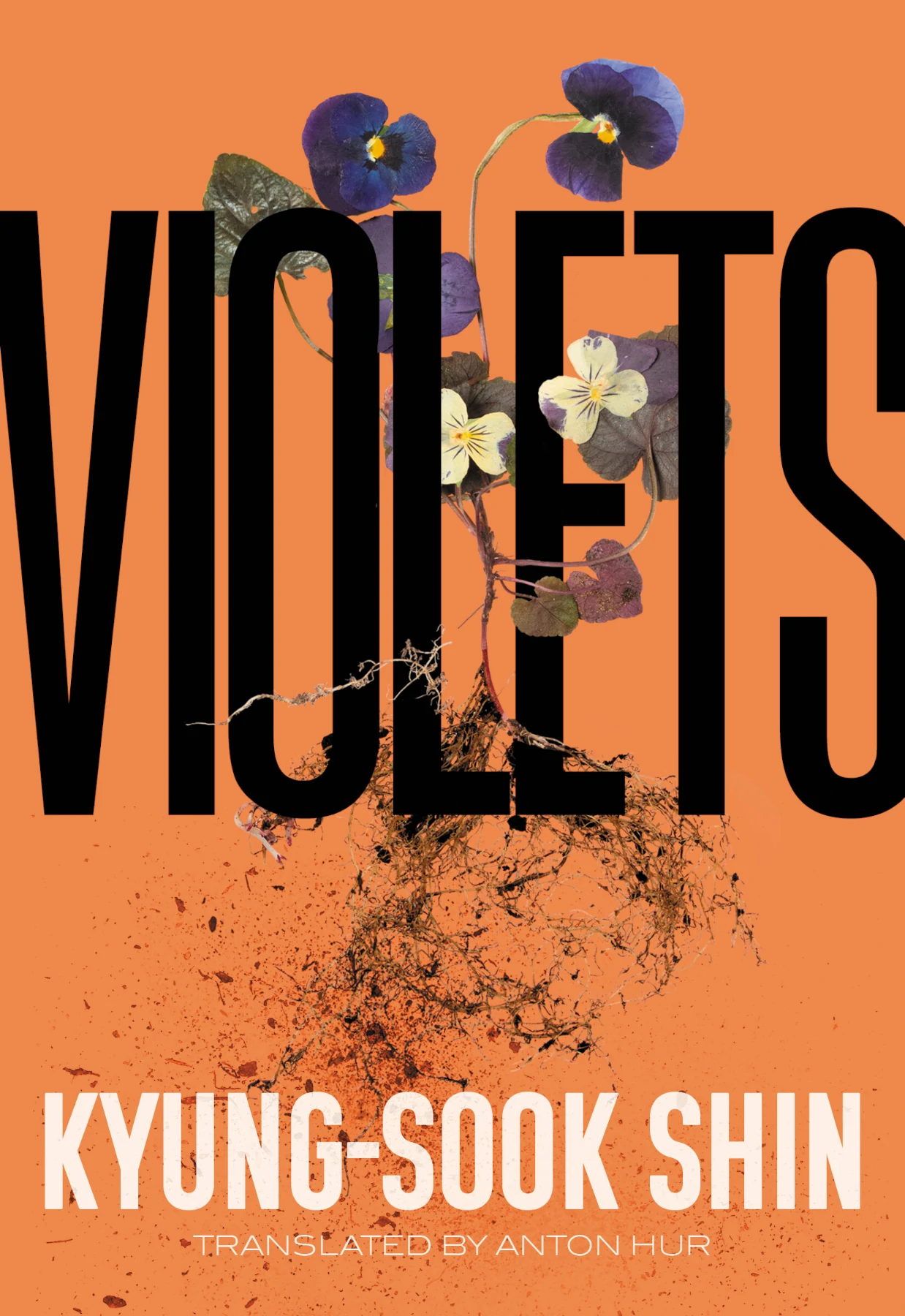
Review of Violets by Shin Kyung-Sook
Words By Asmaani Kumar
Published April 12, 2022 by Feminist Press, Translated by Anton Hur.
When I first picked up Violets by Shin Kyung-Sook, I had prepared myself for a narrative that was dark, gritty, and a striking testament to urban loneliness. But what I instead discovered was the innocence of childhood adventures in Minari fields, and dreams full of longing while looking at the gingko trees by the window. I found so much comfort in the daily lives of San, our main character, and Su-ae, whom she first meets at the flower shop and soon becomes her close friend and roommate. Their observations and routine existence left me with so much warmth and a quiet peace.
Despite their opposite personalities, with San being reserved and Su-ae outgoing, together they cultivate a domestic comfort made of early morning swims, ice-creams for breakfast, and working together. What brings them together is a feeling of abandonment and a painful self-rejection with a refusal to seek solace in people. However, what appears to be a bridge between the two ends up being a barrier during turbulent times. And then, the reader finds that San deviates from this routine life and dangerously comes to terms with her painful past and her desire of being wanted.
Beauty and tragedy sit together in this narrative as our writer leads us through domestic abuse, self-harm, and even sexual abuse. But she also offers us the images of a mundane, wholesome relationship between two women working at a flower shop. The urban landscape is a tough place for anyone to build and sustain connections, but for a woman especially, loneliness is akin to vulnerability with predatory men seeking to take advantage. San’s rejection of the self and her desires bring her so much pain and self-abandonment that someone she’s known all this while ends up abusing her. Perhaps she hoped she would find solace or some affection, but instead she meets violence when she doesn’t accept their advances. What is unnerving about this change in the plot is how close it is to the lived realities of women, who are always at the risk of violence and often abuse at the hands of people they thought could care for them.
Unfortunately, there is no arc of redemption or hope, though I did want so much more for San and Su-ae. I wanted their friendship to grow, for San to write more and learn to live with the pain of her past. But reality isn’t as linear, and one more rejection by a man who can’t even remember her name or face after asking her if he could love her is too much for her to bear. Inevitably, this drives her to make rash and dangerous decisions.
I felt understood but I also felt incredibly sad by the time I closed the book. However, I understand why our writer led San in this direction. We have plenty of stories about young women finding a way out of the unbearable loneliness they feel throughout their lives, but what about the ones who don’t make it? As we fish for stories that tell us about the beauty of the world, there is an equally dark and dangerous side to it, which we can succumb to, most of the time simply out of circumstances and not choice.
San writes, “I spent this past summer repeatedly deciding to do things and giving up on them. As if my life were an exhibition of how good I am at giving up.” And she did, she even gives up on herself towards the end, but I don’t think we can hold it against her. Reading Violets was a practice in understanding and recognizing the hidden difficulties faced by people, how the trauma of the past can intersect the present and take us down difficult roads. It’s a revelation of the unkindness and loneliness of the urban environment we reside in and how difficult it is to break out of that. It’s a glimpse of the sadness and suffering of one face, one life, often overlooked amidst the teeming crowds. This is what the writer left us with, not hope for something better, but the tragedy of what is. Even days after reading, this book leaves us asking questions that will never find answers.